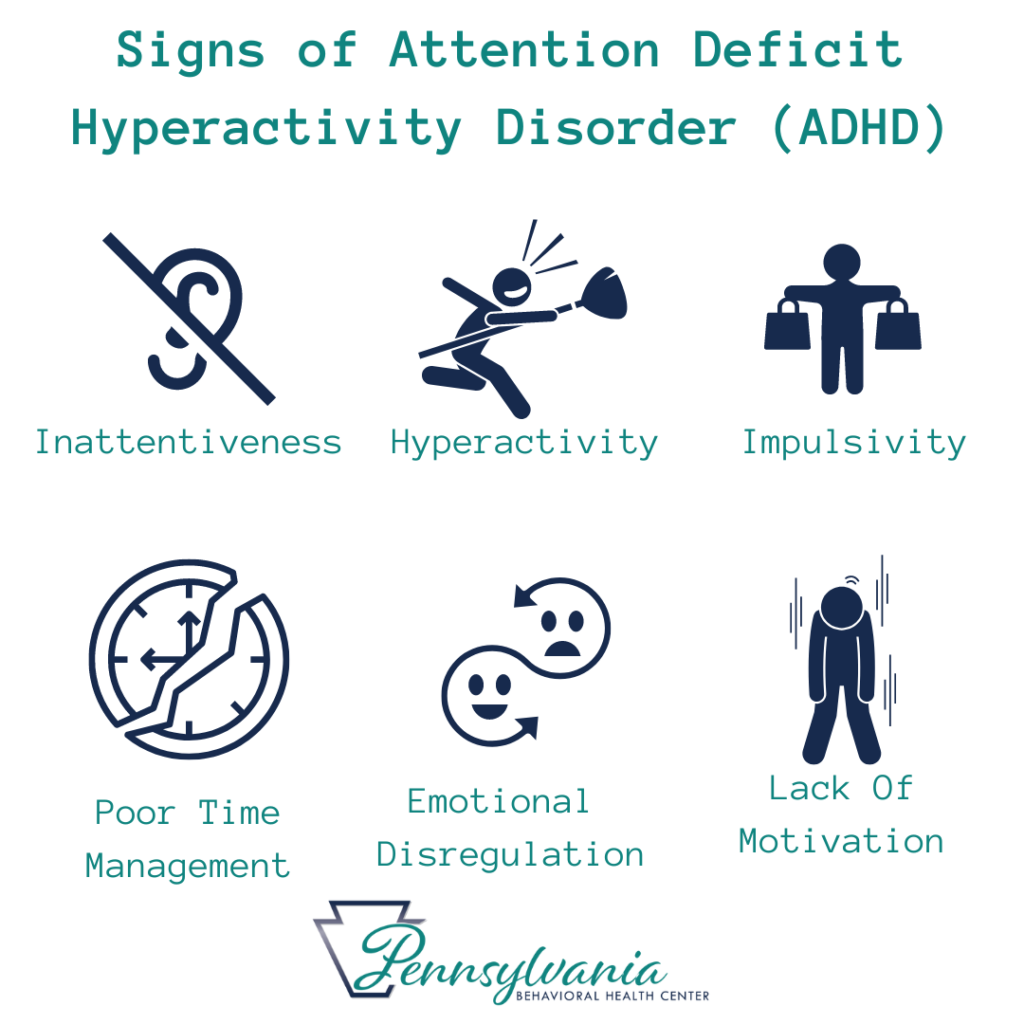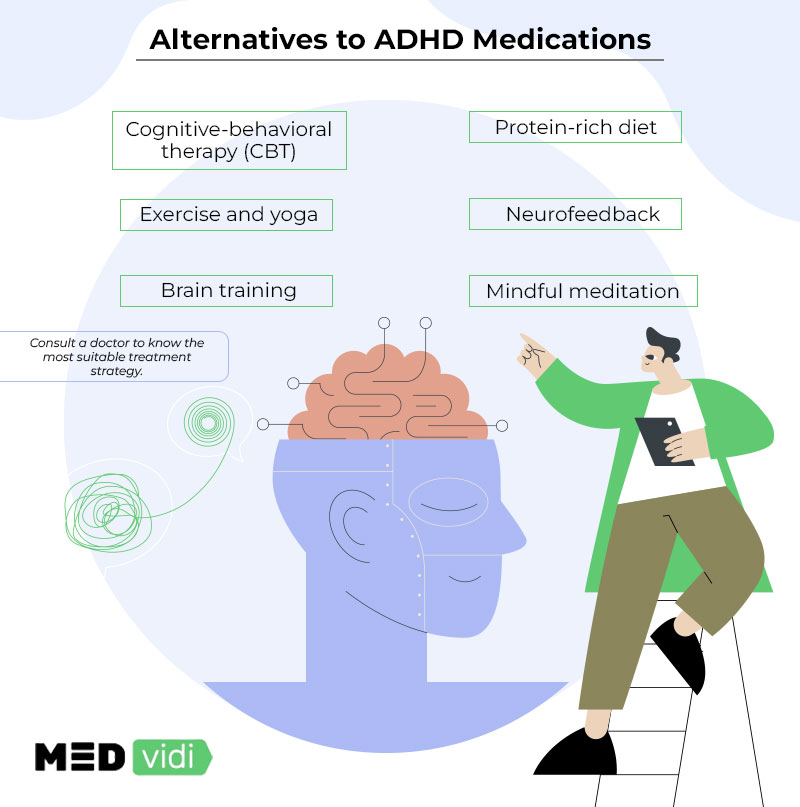Your Guide to Discovering the Right ADHD Therapy for Long-term Outcomes
Navigating the complexities of ADHD therapy needs a nuanced understanding of both the disorder and the myriad options offered for efficient administration. It is vital to acknowledge that what works for one individual might not always produce the exact same outcomes for an additional. Therefore, a tailored approach-- including professional advice, drug, behavior techniques, and lifestyle adjustments-- becomes extremely important. However, the trip towards recognizing the most suitable treatment strategy can be laden with difficulties. What are the vital factors that influence successful results, and how can people guarantee they are on the right course?
Recognizing ADHD and Its Influence

In grownups, ADHD can result in difficulties in work environment settings, impacting productivity, time monitoring, and social connections. Commonly, undiagnosed or poorly managed ADHD can add to co-occurring mental health and wellness problems, such as anxiety and clinical depression, more complicating a person's general health.
The social understanding of ADHD can vary, bring about preconception and misunderstanding, which might prevent people from seeking help. As understanding expands, it is important to cultivate a setting that advertises understanding and support for those impacted by ADHD, highlighting the need for exact medical diagnosis and tailored approaches to mitigate its influence on everyday life.
Introduction of Therapy Choices
A comprehensive technique to dealing with ADHD incorporates a range of alternatives tailored to the individual's one-of-a-kind needs. These options can generally be categorized into behavior treatments, psychoeducation, and way of living modifications, together with pharmacological therapies that might be discovered later.
Behavior interventions, such as cognitive-behavioral treatment (CBT), focus on changing details actions and developing coping strategies to take care of symptoms efficiently. Psychoeducation plays an important function in empowering both individuals and their families by providing information about ADHD, its challenges, and efficient approaches for assistance.
Way of living modifications can significantly impact ADHD administration. Routine exercise, a balanced diet plan, and appropriate sleep add to general health and sign control. Mindfulness techniques and leisure methods can additionally boost focus and lower impulsivity.
Support system and family treatment can promote a feeling of area and understanding, helping individuals really feel much less isolated in their experiences. Each therapy option must be considered together with the individual's preferences and situations, guaranteeing an all natural strategy that advertises long-term success. Inevitably, the objective is to develop a tailored treatment plan that addresses the particular obstacles connected with ADHD while enhancing he has a good point overall lifestyle.
Medicine: Pros and Disadvantages
Medication plays a pivotal duty in the treatment of ADHD, with various options offered that can significantly reduce signs and symptoms for numerous people. Energizers, such as methylphenidate and amphetamines, are commonly suggested and have shown performance in boosting focus, reducing impulsivity, and boosting overall habits. These medicines function by increasing dopamine and norepinephrine degrees in the brain, which are commonly dysregulated in those with ADHD.
Some individuals may experience side effects, including sleep problems, lowered cravings, or increased anxiety. In addition, not all patients respond to energizer drugs, leading some to discover non-stimulant options, which might have a delayed beginning of action or various side effects.
It is important for individuals and their households to consider these pros and cons carefully. see it here Balancing the benefits of signs and symptom management versus potential adverse effects is crucial for accomplishing ideal therapy end results. Cooperation with doctor can help with educated decisions, making certain that medication becomes part of a detailed ADHD monitoring strategy.
Behavior Therapy Techniques

One frequently employed method is Cognitive Behavior modification (CBT), which assists individuals identify and transform negative thought patterns that contribute to ADHD-related obstacles. Therapist for ADHD. Through CBT, clients find out to set realistic goals, manage time effectively, and develop business systems
An additional effective technique is Parent Monitoring Training (PMT), which educates parents on exactly how to reinforce favorable habits and lower negative ones through constant self-control and interaction techniques. This technique promotes an encouraging home setting that encourages behavioral improvements.
Social skills training is also essential, aiding individuals with ADHD browse social interactions a lot more effectively. Role-playing and modeling ideal behaviors can improve social competence and Your Domain Name minimize anxiety in social circumstances.
Way Of Living Modifications for Better Monitoring
Just how can lifestyle changes substantially improve the administration of ADHD symptoms? Applying calculated way of living alterations can bring about significant improvements in focus, company, and psychological guideline for people with ADHD.
First of all, developing a structured day-to-day regimen assists in producing predictability, which can reduce feelings of bewilder. Constant schedules for dishes, research study, and sleep can improve day-to-day performance.
Including routine exercise is also essential, as workout has been shown to enhance dopamine levels, boosting attention and motivation (Therapist for ADHD). Going for at the very least half an hour of moderate exercise most days can be advantageous
Nourishment plays an essential duty. A balanced diet abundant in omega-3 fats, whole grains, and protein can support cognitive feature. Limiting refined sugars and caffeine might decrease symptoms, as these can cause energy crashes and irritation.
Conclusion
In final thought, locating the ideal ADHD treatment demands a multifaceted strategy that thinks about specific requirements and preferences. A mix of medicine, behavioral therapy, and way of life modifications can considerably improve symptom management and general well-being. Involving in psychoeducation and establishing organized regimens further sustains reliable treatment approaches. Partnership with health care professionals and open interaction with support networks are crucial components in browsing the complexities of ADHD management, inevitably leading to long-term outcomes and boosted high quality of life.